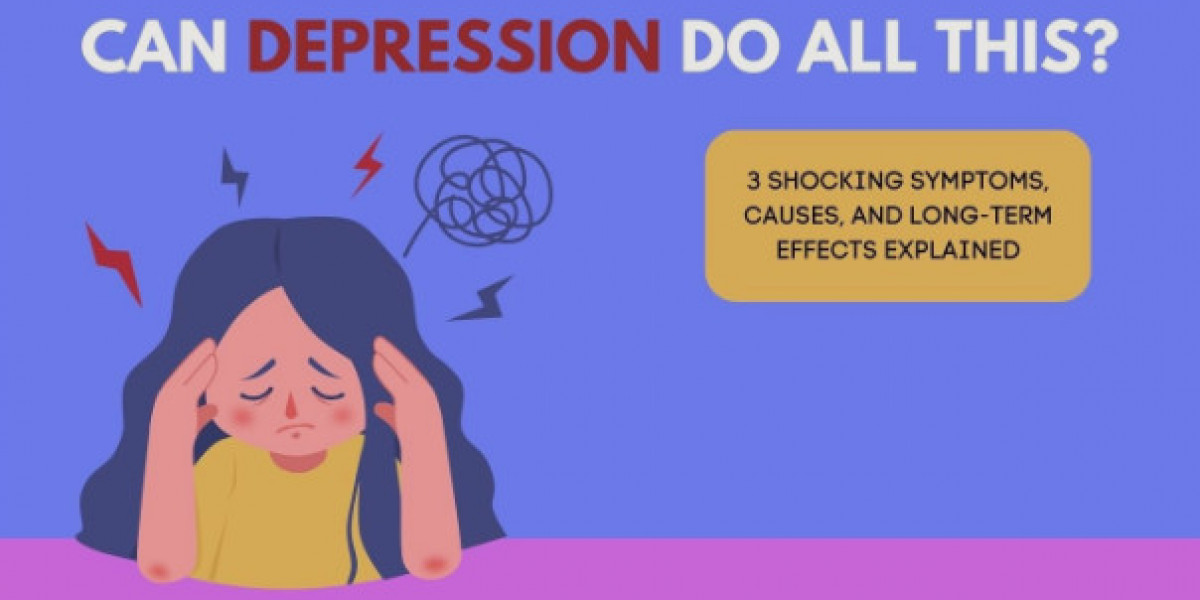Have you ever found yourself misplacing your keys, forgetting appointments, or struggling to concentrate—especially during emotionally low periods? If so, you’re not alone. Many people who experience prolonged sadness or anxiety begin to question, “Can depression cause memory loss?” The answer, backed by clinical research, is a resounding yes. Depression doesn’t just affect your mood—it can significantly impact your cognitive functions, including your ability to remember things clearly.
What the Science Says
To understand can depression cause memory loss, it helps to look at what happens in the brain during a depressive episode. Depression alters brain chemistry by affecting neurotransmitters like serotonin, dopamine, and norepinephrine. These chemicals play essential roles in regulating mood, attention, and memory. When these neurotransmitters are imbalanced, it can become difficult for the brain to function optimally, leading to symptoms like poor concentration, forgetfulness, and mental fatigue—commonly known as “brain fog.”
This brain fog is not just frustrating; it's a real and medically recognized symptom of depression. People with depression often find it challenging to retain new information, focus on tasks, or recall memories. They may struggle at work or school, not due to a lack of intelligence or effort, but because their mental state is clouding their ability to think clearly.
Memory Loss and Stress
Adding stress to the mix can make memory issues worse. Chronic stress, which often accompanies depression, increases levels of cortisol in the body. Elevated cortisol levels can damage the hippocampus, the area of the brain responsible for memory formation and retrieval. So, if you're wondering can depression cause memory loss—especially during stressful times—the answer is even more emphatic.
This creates a frustrating cycle: stress and depression lead to memory problems, which in turn lead to more stress and lower self-esteem, deepening the depressive state.
Short-Term vs. Long-Term Memory
Interestingly, depression tends to affect short-term memory more than long-term memory. This means you might remember events from years ago but forget what you ate for breakfast or what your colleague just said in a meeting. This is why many people with depression complain of being “mentally absent” or “disconnected,” especially in the middle of a conversation or task.
The Good News: It’s Reversible
While it may feel alarming to realize how deeply depression can impact your brain, there’s a silver lining. In most cases, memory issues caused by depression are reversible. With effective treatment—whether through therapy, medication, or lifestyle changes—many individuals see noticeable improvement in memory and cognitive function.
That’s why getting a proper diagnosis and support is so crucial. If you or someone you know is struggling with forgetfulness alongside other signs of depression like persistent sadness, fatigue, or lack of motivation, it’s important to seek help. Addressing the root cause—depression—can not only improve emotional well-being but also restore mental sharpness.
Final Thoughts
So, Can depression cause memory loss? Yes, it absolutely can. Depression impacts more than just your emotions; it changes how your brain processes information, reacts to stress, and stores memories. But with the right intervention and support, these effects don’t have to be permanent. Your brain has a remarkable capacity to heal. Taking that first step toward treatment may be the key to getting both your happiness and your clarity of mind back.










